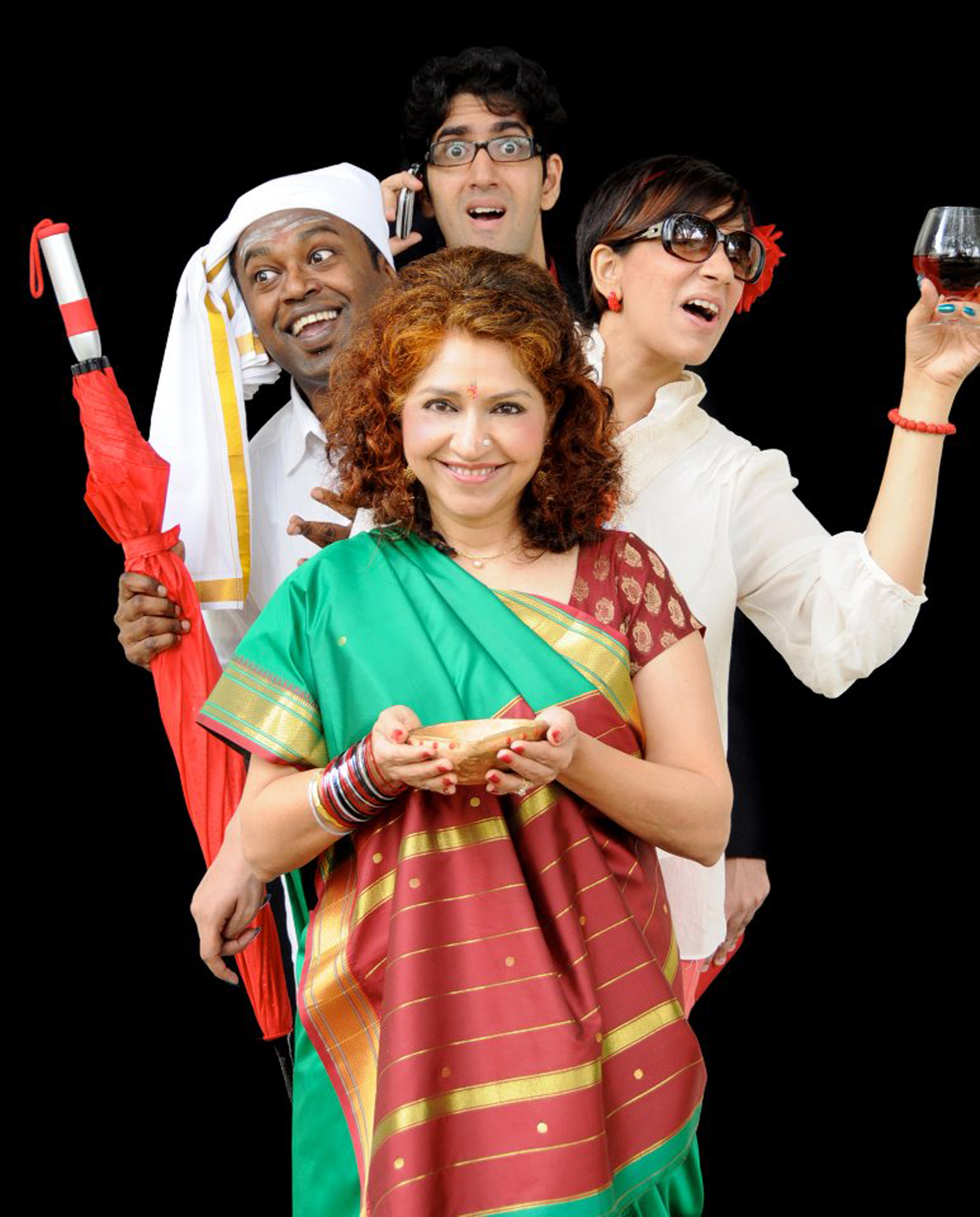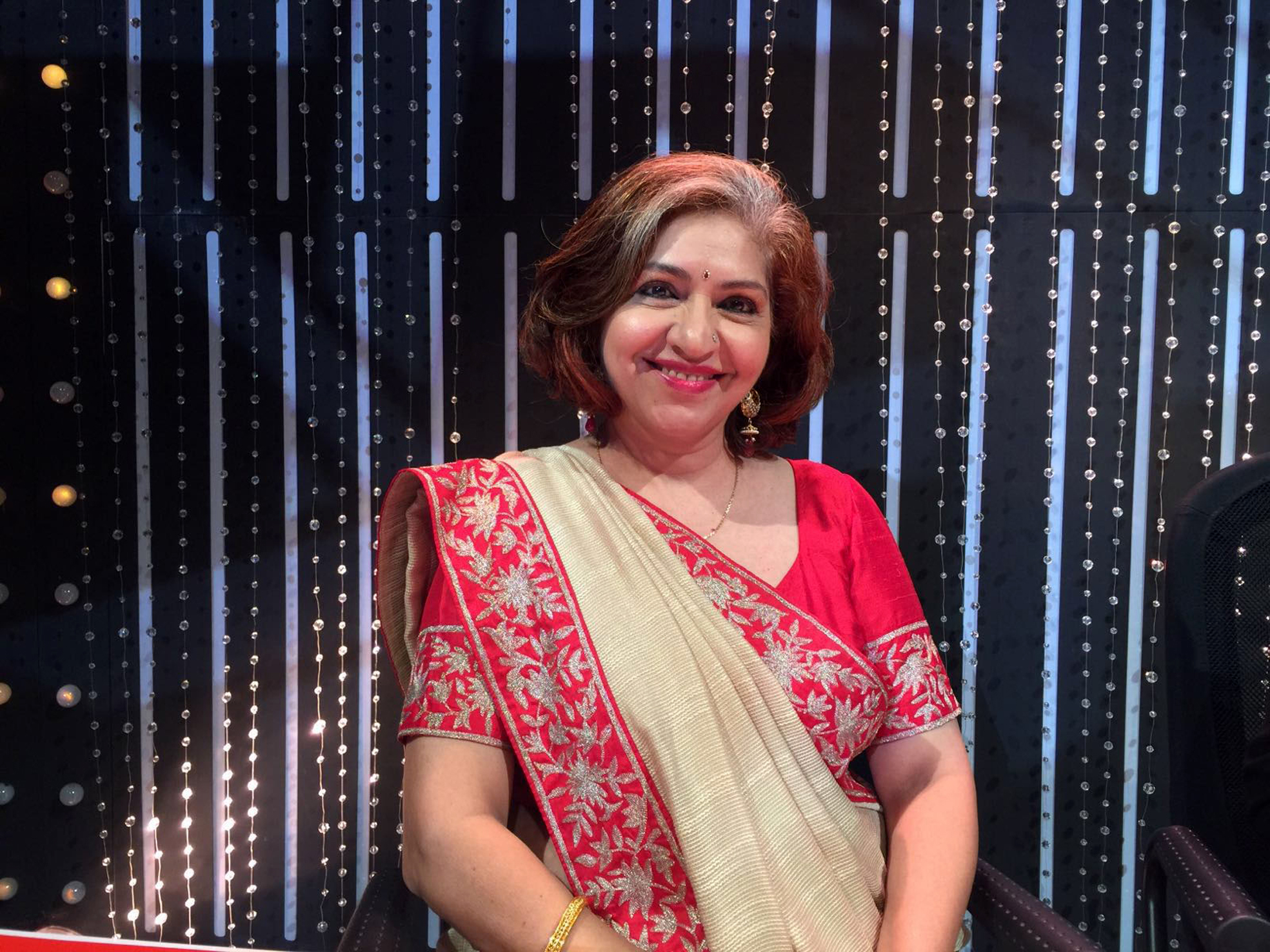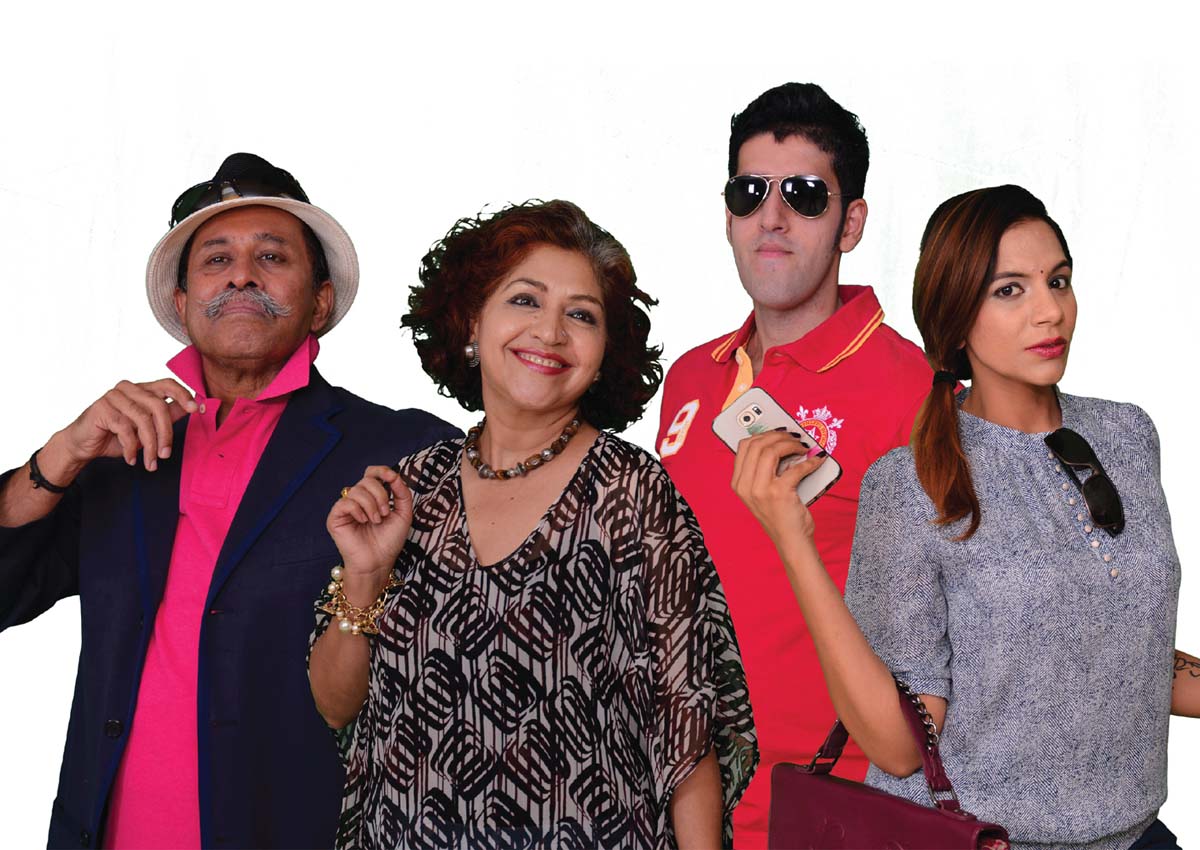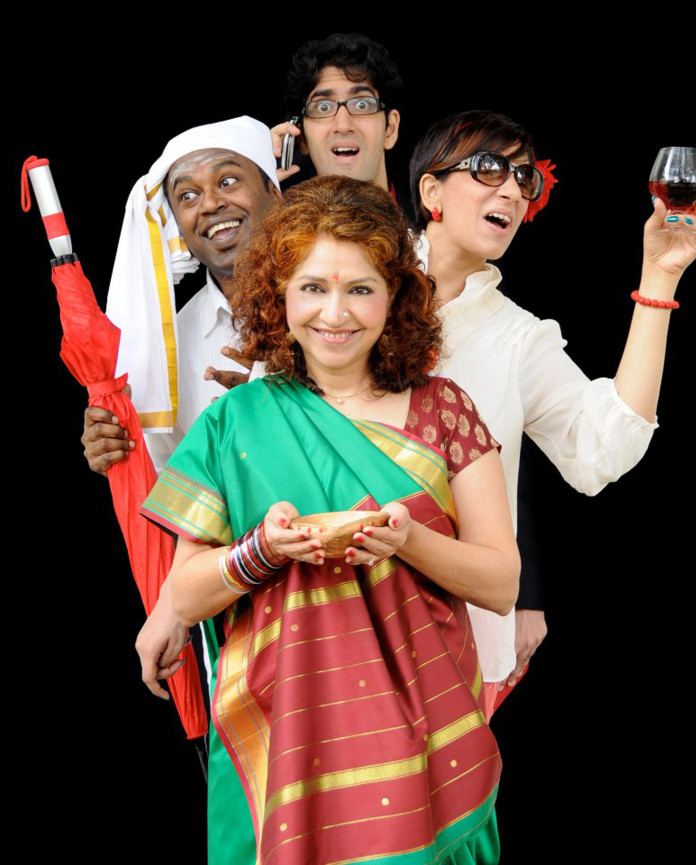“The hallmark of the Indian community is the ability to laugh at ourselves,” says Subin Subaiah.
Best known to Singaporeans for his work in the local entertainment scene, Subin has penned his first full-length play,We Are Like This Only 2. It is the sequel to 2013’s We Are Like This Only, which addressed the tensions between Singaporean Indians – or old Indians – and the newer Indian expatriates.
Starring Subin, his wife – local actress, producer and director Daisy Irani – stand-up comedienne Sharul Channa and actor-comedian Rishi Budhrani, the play promises to be funny and full of “wonderful characters that are representative of every type of Indian who has traversed Singapore”, says Subin.
Daisy explains that immigration was a hot button issue in 2013, when We Are Like This Only premiered. She says: “The Chinese were talking about the PRCs coming in and Indians were talking about new Indians coming in, so that was the environment at the time.” The cast and crew conducted extensive research to find out the sentiments on the ground, including speaking to many people and reading blog posts on the issues.
Summarising the sentiments, Subin says: “On one side, local Indians have the impression of the new Indians as being people who have a sense of entitlement, are supercilious, are snobbish and flaunt their wealth, while the new Indians see no reason to integrate with the old Indians because they’ve come in such large numbers that they’ve been able to create their own self-sustaining communities – and this annoys the old Indians even more, because the new Indians don’t need them.”
We Are Like This Only and its sequel are no ordinary plays: The audience is invited to be part of the show. Sharul and Rishi, who acted in the first play, along with Daisy and actor Sivakumar Palakrishnan, noted that reactions to the show were strong.
 The cast of “We Are Like This Only”. Photo: Hum Theatre
The cast of “We Are Like This Only”. Photo: Hum Theatre
“It’s more similar to a forum piece, with post-show discussions and suggestions from the audience on how certain scenes might play out, or short recreations of some scenes, and a lot of people were keen to voice out their experiences,” says Rishi.
“People either vehemently agreed or disagreed. The views were very raw back then and emotions were very heightened.”
Sharul agrees, noting the response to some of the characters she portrayed. One of her characters was a local south Indian teacher who voiced her opinions about “living in a society where Indians aren’t the majority race and more Indians are coming in”, and she found that a lot of people in the audience connected with her character.
In the three years since We Are Like This Only, there has been a change in sentiments.
“It has now gone into pettiness rather than something visceral that people are angry or anxious about,” says Subin.
“Now, nobody knows any more who the new ones are and who the old ones are,” says Daisy, who moved here from Mumbai with Subin in 1991.
 Local actress, producer and director Daisy Irani. Photo: Hum Theatre
Local actress, producer and director Daisy Irani. Photo: Hum Theatre
“If you’ve lived here for 10 to 12 years, are you still considered new? If you’re fair and from the north, are you always considered new?
“That’s the point where you can actually see integration naturally taking place.”
For HuM Theatre, it was the right time to put on a sequel.
“Over the years, immigration continues to happen and new arrivals will always come to Singapore, whether they are Indian or otherwise,” explains Daisy who, along with Subin, received her Singapore citizenship in 2004.
“There will be a little bit of a simmering, a little bit of an adjusting, and then we move on to the next stage in the cycle, to acceptance. “Now we’re on to the second part, where the emotions may not be so raw and embittered and angry.”
There is a historical component to the sequel that goes back to Singapore’s early days.
“We talk about how Indians came to Singapore over the centuries, whether to build roads or temples, whether with Raffles, whether they came as moneylenders, traders and so on,” says Daisy.
“We explore that to give the impression of cycle after cycle after cycle and now we’re finally here, in this cycle.”
A snippet of this was presented at the launch of the Indian Heritage Centre. HuM Theatre felt that it worked so well with the vision of the play that they decided to include it.
Subin collaborated with playwright Gauri Shrivastava on We Are Like This Only, but he was on his own for the sequel. The process of writing the script involved heavy research.
“The authenticity of what we’re communicating to the audience is critical,” he says.
“The research was comprehensive and consisted of going through blogs, government White Papers, candid conversations with people and historical research at the Indian Heritage Centre.”
The tricky part was figuring out how to treat an issue that could be considered sensitive and even offensive to some people. Subin explains: “The trick is to wrap it with satire and humour, even fantasy. It softens the blow but sharpens the message.”
Indeed, humour was one of the highlights of We Are Like This Only.
Mr Biren Desai, former president of the Singapore Gujarati Society, praised the play’s “intelligent humour that drove a very strong message to the audience in a subtle and intelligent way”.
“The play did a great job of conveying the nuances of Indian habits, languages and culture, something that is not often understood by non-Indians,” he says. “For people not in the know, the message was that we are like this only. This is how we are.”
He is looking forward to an entertaining evening, and to the message that HuM Theatre will be bringing forth in the sequel.
Summing up We Are Like This Only 2, Rishi and Sharul say it is a great example of how complex Indians are.
“We’re holding up a mirror to Indians, showing them how new Indians will be 10 years from now, how they will feel about new Indians in 10 years,” says Sharul.
Adds Rishi: “You can never understand why Indians are so complex, and in these two hours you will definitely not understand why.” Subin promises that it’s “a cracking show”.
“If somebody goes away from the show saying they didn’t have a good chuckle, I will be very disappointed,” he says.
Mr Desai notes that the audience in the first play consisted of non-Indians as well as Indians, and Daisy says that HuM Theatre is not looking to be an Indian group, but a Singaporean group.
“We want to approach Singapore from an Indian perspective,” she explains, adding that since HuM Theatre was founded in 2009, they have selected plays that will resonate not just with Indians, but with Singaporeans as a whole.
The only play that was truly Indian was Nagamandala, performed in 2014 at the Kalaa Utsavam festival. The folk story based on Girish Karnad’s story was chosen “because it’s a folk story, and folk stories transcend all boundaries”, Subin says.
Daisy, who recently left Mediacorp and is now turning her full attention to HuM Theatre, is excited about what the future will bring for her and for the theatre company.
“There’s a totally different world waiting to be explored,” she says.
She’s looking forward to doing different projects and working with different groups, and has some “really exciting plans”.
For now, though, she hopes that the reactions to We Are Like This Only 2 will be as positive as the first play, which had a very strong impact that was needed in those times. It has already received positive reception, with some of the evening shows sold out and the National Integration Council coming on board to support the production.
Says Daisy: “The opening shows are packed and we are pretty much looking forward to a thrilling finish as well.”
“It just goes to show that the subject matter resonates very well with both Indians and all the other races. And the reason for that is that everyone knows – wherever we come from, wherever our roots are, we are all joined together in our Singapore journey,” she adds.
tabla@sph.om.sg
We Are Like This Only 2 will be staged on Sept 1 to 4 at 8pm, and Sept 8 to 11 at 8pm, with matinee shows on Sept 3 and Sept 10. For more details, log on to http://www.showtickets.asia/?r=home/view&event_id=20

Get a copy of tabla! for more stories.







